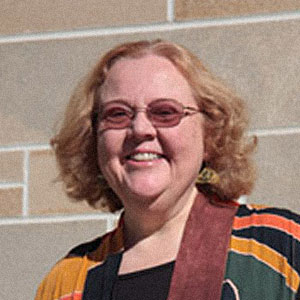
Dr. Vitzthum Named Fulbright Scholar
Dr. Vitzthum is a Fulbright-NSF Scholar hosted by the University of Iceland to conduct a multi-season study (CYCLES Iceland) on the effects of dramatic seasonal extremes in photoperiod (day length) on several aspects of women's physiology including reproductive and immune functioning, sleep repertoires, and psychosocial well being.
An evolutionary anthropologist, Dr. Vitzthum's work of the past 20 years has focused on the determinants of variation in human female reproductive functioning.
Vitzthum's previous work in this area includes Project REPA, at the Bolivian Institute for High Altitude Biology, which was a longitudinal study of hormonal variation in highland Bolivian women begun in the mid-1990s and most recently worked with in 2011. In the mid-2000s, she studied the lifeways and physiology of nomadic Mongolian herders, whose caloric intake is similar to Bolivians but whose consumption of animal fat is closer to that of Americans, and did a comparative study measuring hormone levels in women born in the former East and West Germanys, where both diet and activity patterns differed before reunification.
Dr. Vitzthum Appointed to the Scientific Advisory Council of the Centre for Menstrual Cycle and Ovulation Research
Virginia J. Vitzthum has been appointed to the Scientific Advisory Council of the Centre for Menstrual Cycle and Ovulation Research (CeMCOR), headquartered in Vancouver, Canada.
CeMCOR is the only centre in the world that focuses on ovulation and the causes for, and health consequences of, ovulation disturbances. Its goal is to do good science that honours the voices and experience of women.
Dr. Vitzthum was selected to join the Scientific Advisory Council for her research focus on the environmental, behavioral and sociocultural determinants of individual and population variation in women's reproductive functioning and the consequences of this variation for women's health.
Support Kinsey
Love is more than an emotion. It is essential to our individual and collective well-being. Your support will help the Kinsey Institute advance research and education in the science of love and give a diverse field of researchers the resources they need to make new discoveries.
Pledge your support